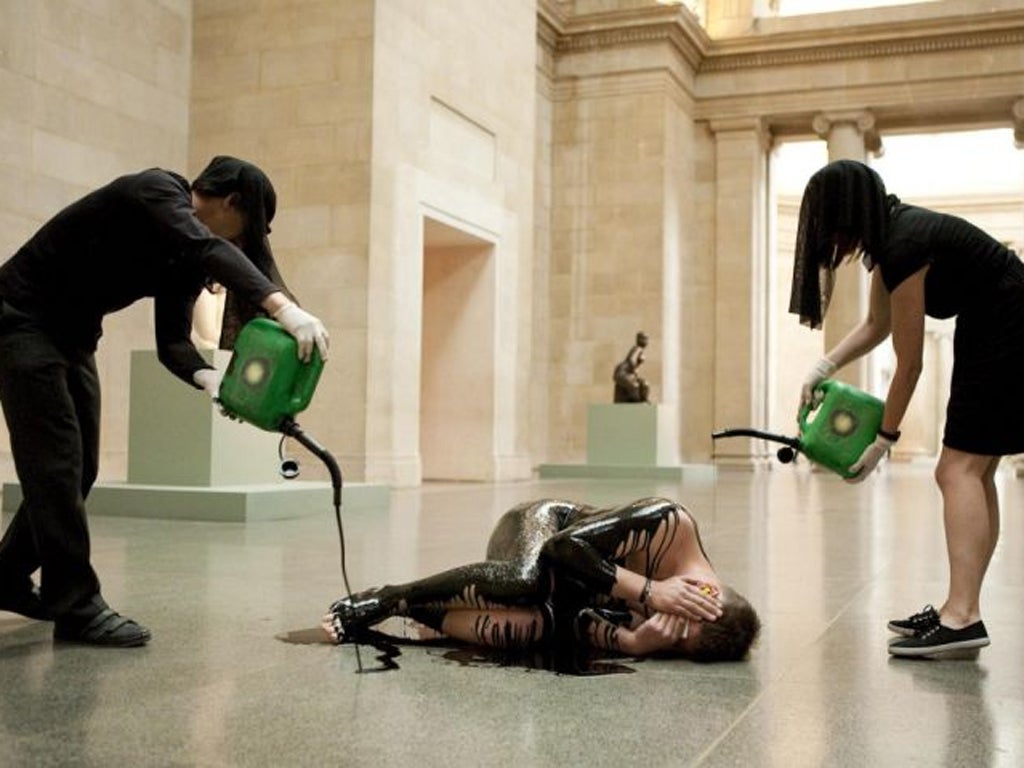No such thing as bad publicity for the city slickers
Business plays a crucial role in arts funding. Emily Jupp talks to some major sponsors

Art suffers the moment other people start paying for it," muses the cartoonist and author Hugh MacLeod, in his book on keys to creativity.
This month, in a move that put MacLeod's words into action, the poets Alice Oswald and John Kinsella withdrew from the shortlist for the TS Eliot poetry award, because the £15,000 prize is sponsored by an investment management company.
Oswald said: "Aurum has an office in Bermuda, which happens to be a tax haven," she wrote, adding, "it doesn't, according to its website, have an ethical policy."
Sam Chase, of campaign group Art Not Oil, offers an insight into concerns that sponsors have become too hands-on. "People argue that patronage of the arts has always existed, but the Sistine chapel doesn't have a Vatican logo.The gap between what they are doing and what they want us to think about them is widening."
Funding cuts mean the balance of power is shifting towards the sponsors. They are no longer benign patrons, keeping a respectable distance. A one-off project that adapted the Old Vic's interior into a theatre-in-the-round, for example, was paid for by the hedge fund CQS, whose founder is a member of that theatre's Artistic Director's Circle. Mark Kramer, a senior fellow at the Corporate Social Responsibility Initiative at the Harvard Kennedy School of Government explains, "There's pressure for artists to agree to funding wherever they can get it. The more restricted government funding is, the more influence the organisations have."
It's within this growing atmosphere of resentment that large corporations are pledging millions to benefit the arts. What's in it for them? Kramer says there are two reasons why "perceived altruism" is an advantage. "Firstly, the reputation of being a good corporate citizen, secondly, people ascribe the quality of one organisation to the other." A bit like being a strait-laced banker who starts dating a bohemian artist, the firms hope that some of that coolness will rub off on them.
In June of this year, climate-change activists protested against the BP portrait award and an 8,000-signature petition was sent to the Tate's director asking for it to refuse financial support from Big Oil. BP has also caused uproar by becoming "sustainability partner" to the 2012 Olympics and it slaps its logo prominently on the related publicity.
"It's not pure altruism," says David Nicholas, a media director at BP. "Sponsorship can bring benefits to our reputation." Even the negative publicity doesn't seem to bother him."Everyone has a right to protest – at least it gets people talking about BP!" But he denies that the company is trying to maintain an acceptable face. "If you want to try to put an artsy face on a roughneck in overalls, I leave that to you."
Marco Compagnoni, a senior partner at the City law firm Weil, Gotshal & Manges, says objecting to big business sponsorship is "absolutely bonkers" but he rejects BP's assertion that it's for employee benefits. "It's not done for the perks. Law firms aren't munificent, activities like that are for marketing and keeping close to clients to help your business. We are doing an evening at the Leonardo and one at the Hockney because it's a good atmosphere to talk to clients. It's not to be nice."
But if they continue to keep branding and influence as one aspect of their sponsorship, the companies could tip the balance and actually harm their own brand. "The arts organisation will lose the respect of the public and do damage to their reputation," explains Kramer. "The sponsoring companies will in turn lose the benefit of the prestige. It impacts on both parties." The result is that it won't benefit the sponsor any longer. But if the companies aren't sponsoring the arts, who will?
Join our commenting forum
Join thought-provoking conversations, follow other Independent readers and see their replies
0Comments